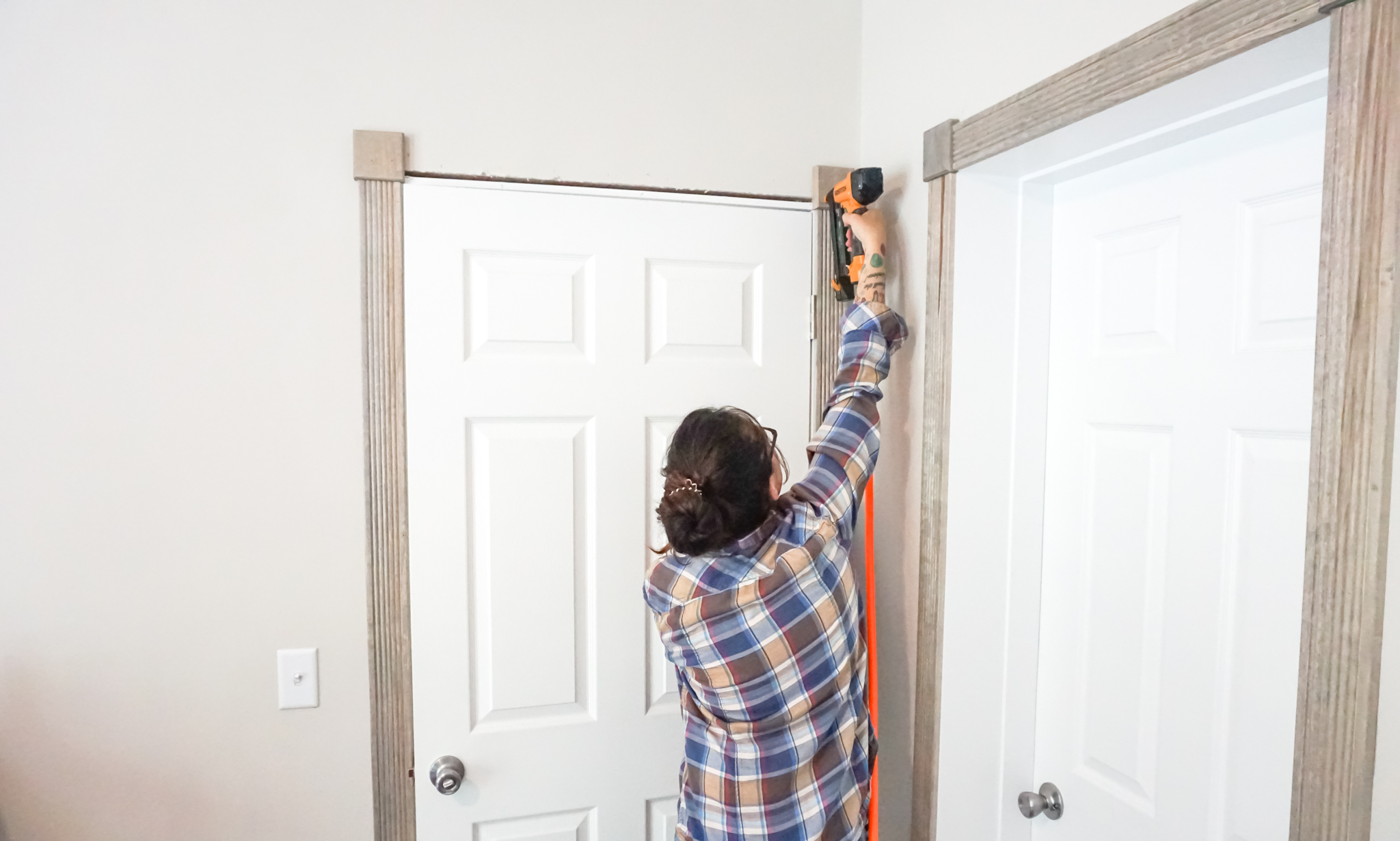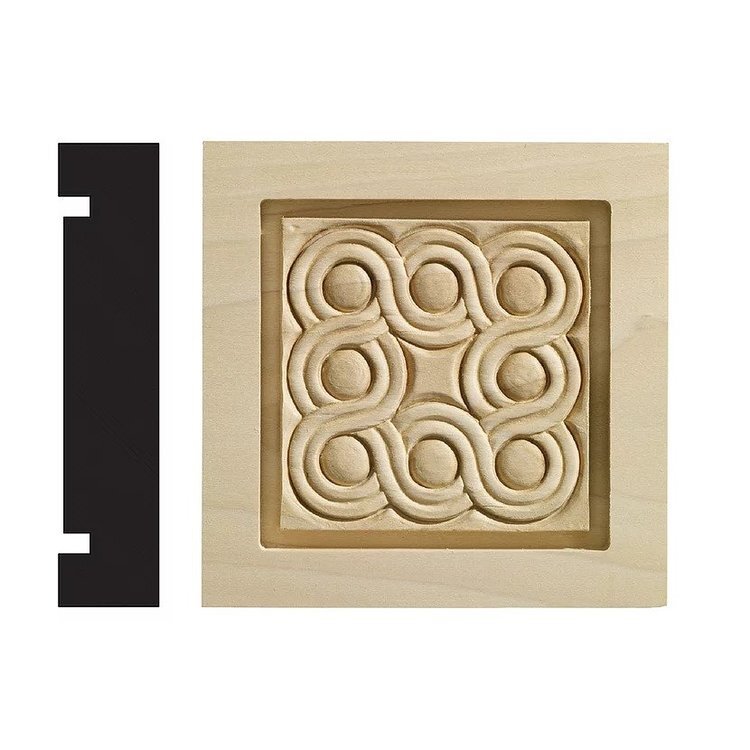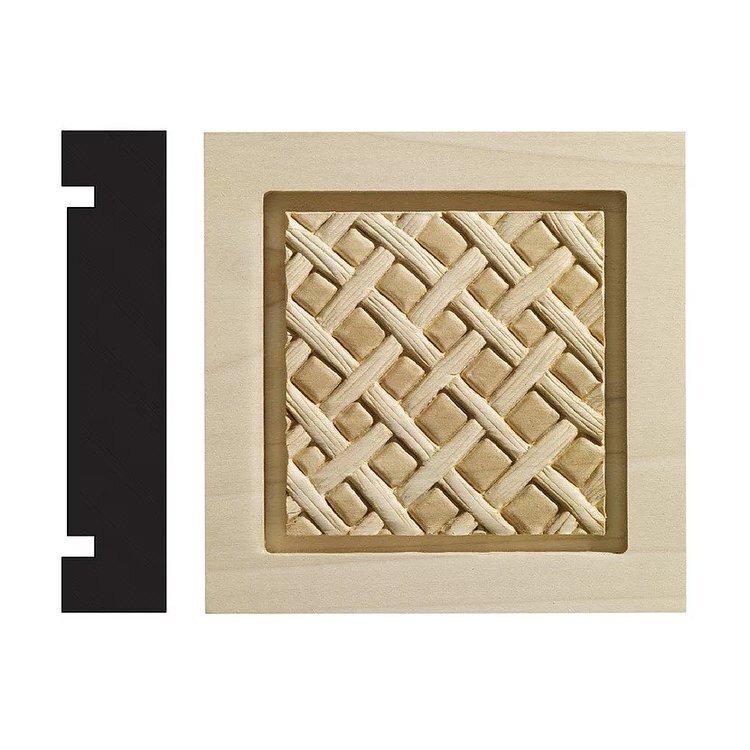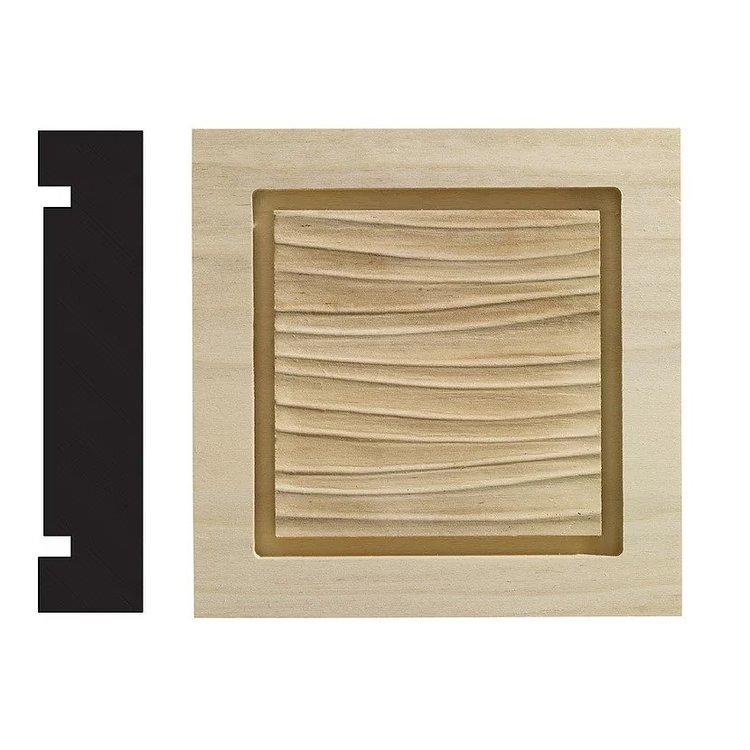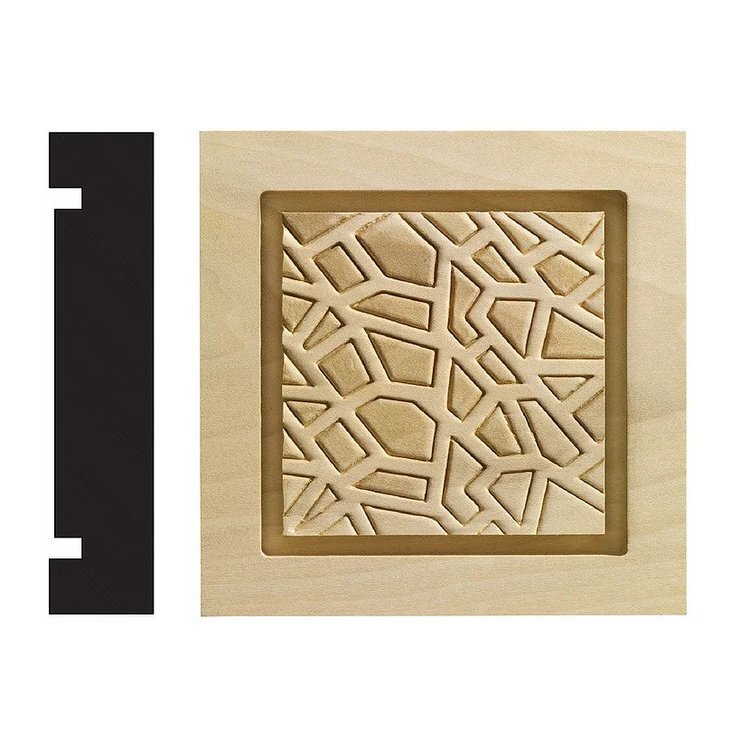For homeowner Jaclyn Dryden, the magic of moulding involves her secret weapon: corner and plinth blocks. Using these decorative blocks enables Dryden and other DIYers to quickly surround interior doorways without the hassles of mitering corners.

Making miter cuts is intimidating to many people, myself included,” says Dryden, chief influencer with Hello Betty Company. Whether you use rosettes, blocks, connectors or corner pieces, they all eliminate the need to drag out a miter saw.
Corner Piece Freedom
For a recent bedroom “molding makeover” Dryden chose to add stylish gray grained 1712 crown moulding to the ceiling and matching 1753 casing from Ornamental Moulding and Millwork to surround three interior doors. She used corner pieces at the top corners of her interior doors. At the bottoms, she used matching plinth blocks.

“Using the corner pieces gave me the freedom to do this entire project on my own,” says Dryden. “Mitering corners can often be time-consuming and complicated. I’ve put up moulding with and without corner pieces.”

“I would recommend that any homeowner looking to do their own project should consider using the corners and blocks. In addition to giving the doors a classy look, it’s simply an easier job. On a scale of 1 to 10, I’d give this a rating of two as a truly easy project for any DIYer to tackle.”
Add Fashion Statements
While Dryden selected simplistic styles for her mouldings and corner pieces from Ornamental Moulding and Millwork, there are also a variety of decorative corner styles that add even more fun to a room. “Fashion block” styles available include Rondele, Loose Weave, Whimsey, Floral and a variety of other designs.
As Dryden discovered, plinth blocks are used at the base of the moulding, to add a variation to the moulding. She reported on the story step-by-step in her blog.
Go Colorful
For her bedroom project, Dryden selected gray mouldings with a light woodgrain accent.
“So many homeowners go with standard white moulding,” says Dryden. “I think that’s a mistake. A complementary color or the gray woodgrain moulding we selected can really set off the room. For our home, which is a farmhouse style, the grey moulding gives the home a bit more character and complements our grey hardwood flooring.”

Tips for DIYers
With past experience as a co-owner of a remodeling business and now a DIY expert, Dryden has several tips and suggestions for homeowners.
“You can save a TON OF MONEY by tackling projects yourself,” says Dryden. “There are so many websites and videos online that give you inspiration plus step-by-step instructions. Start there and don’t be afraid to jump in with a new project!”
From her experience with this moulding project, Dryden offers the following tips:
Tip #1
Always be sure to measure … and then measure again! Being confident about accurate measurements is very important.
Tip #2
Have the proper tools pulled out and ready to go. This way you’re not running around once the project starts trying to find what you need.

Tip #3
Consider using the rosettes/corner pieces so you don’t have to miter. There are many YouTube videos about mitering corners, but honestly this is not something you learn overnight. The corner pieces are the perfect no-mitering solution.
Tip #4
Once you’re ready to cut your mouldings, measure again. There’s an old saying “measure twice, cut once” … for me, it’s measure THREE times, and cut once!
Tip #5
Don’t be afraid to ask for help. Your local home improvement store or hardware store will have people to answer questions. Most times you can also contact a product manufacturer. There’s lots of support out there for all levels of projects.

Share your moulding project with us via #OrnamentalBuild on social and make sure to tag us!

